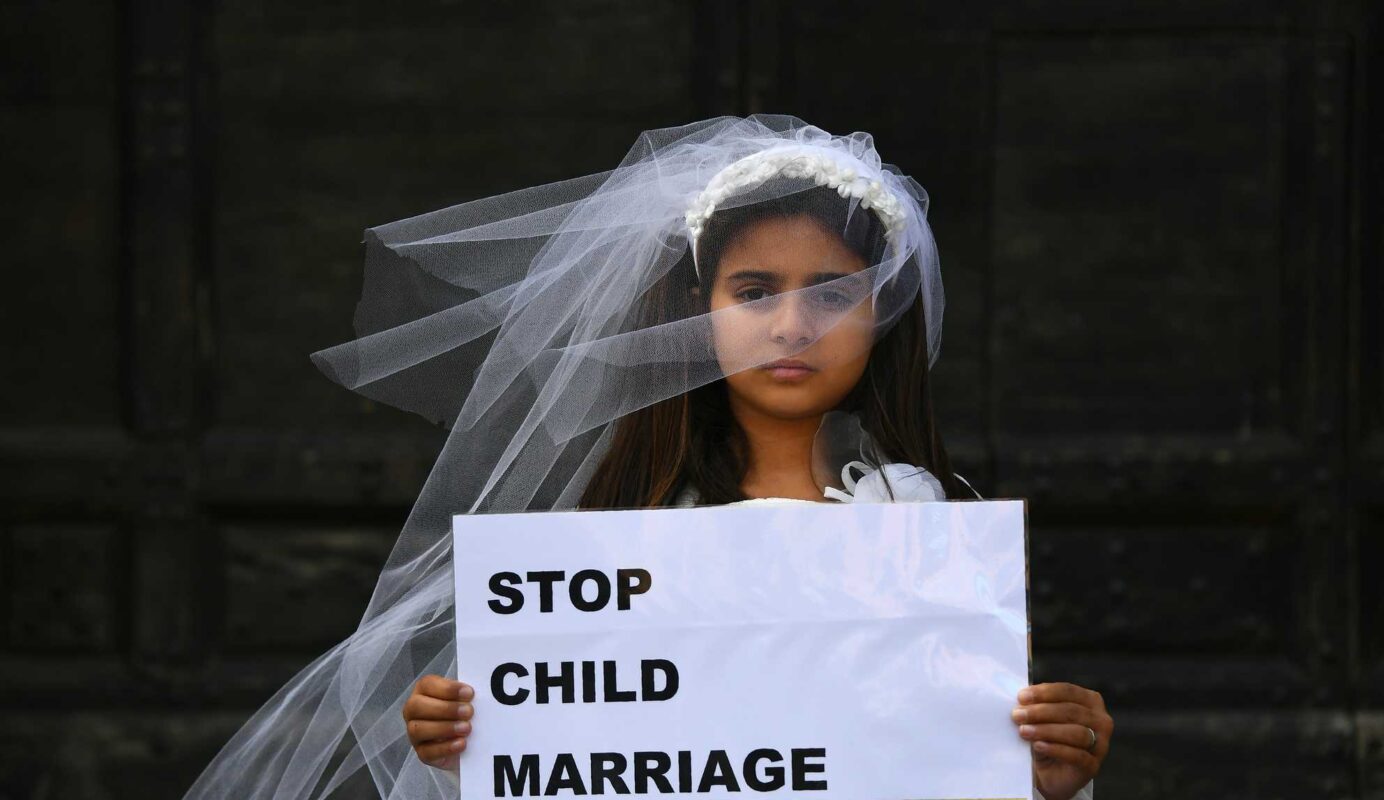Child marriage represents a pressing issue in Bahrain, mirroring a global crisis where, according to the United Nations Children’s Fund (UNICEF)’s Child Marriage database of 2020, 12 million girls are married before the age of 13 each year. Breaking the data down: every minute 23 girls underaged are getting married, which means nearly 1 every 3 seconds.
The numbers highlight the complexity of child marriage in Bahrain, deeply rooted in gender inequality and influenced by poverty, lack of education, and entrenched social norms. In Bahrain, child marriage is more prevalent in economically disadvantaged areas, where it is seen as a means to gain financial security and reduce family costs. Additionally, restricted access to education and low social, political, and economic status reinforce this practice, making girls more vulnerable to exploitation, including human trafficking and child marriage.
Child marriage also happens to avoid scandal and social stigma: parents often marry their daughters to the perpetrator, sometimes for a short duration. In fact, as outlined by the Bahrain Women’s Union, Article 353 of the Penal Code permits offenders of sexual violence to escape punishment by marrying their victims.
International law addresses such multifaceted issues through the implementation of different international law treaties: the United Nations Convention on the Rights of the Child (CRC) together with the Convention on the Elimination of All Forms of Discrimination Against Women (CEDAW) may be identified as the key pieces of legislation.
While the CRC does not explicitly mention child marriage, but focuses on recognizing and protecting several children’s rights which may be eventually hindered or compromised by child marriage; the CEDAW advocates for the elimination of discrimination against women in all matters, including marriage and family relations.
In 2016, UNICEF, with the support of the United Nations Population Fund (UNFPA), launched the Global Programme to End Child Marriage.
Bahrain ratified both the CRC and CEDAW in 1992 and 2002, respectively; and committed to eliminate child marriage by 2030 in line with the Sustainable Development Goals, target 5.3.
The above-mentioned legal frameworks bind the state to ensure free and full consent to marriage, setting a minimum age of 18 years old to get married. Nevertheless, according to Article 20 of the Family Act, the minimum legal age for marriage is still 16 years old, contrary to the one for boys and men which is 18. Moreover, according to the same Article, girls can be married before the age of 16 with the permission of the Sharia Court.
Already in 2014, the CEDAW Committee reiterated its previous recommendation urging the state to raise the minimum age of marriage for girls to 18 years, ensuring gender equality. Once again, in the 2018 Fourth periodic report, the same Committee stressed the need for legislative reform to align the national Family Act with Bahrain’s international responsibilities.
Similarly, in 2019, the CRC Committee recalled its previous recommendations to amend the Family Act to a minimum age of 18 for marriage and to implement all necessary measures, including awareness-raising programs, to eradicate child marriage in accordance with the State party’s obligations under the Convention.
Overall, the issue of child marriage remains persistent and of global concern, not only depriving girls of their childhood but also perpetuating cycles of poverty and gender discrimination. Bahrain, having ratified treaties like the CRC and CEDAW, is committed to eliminating child marriage by 2030. However, its national law still allows girls to marry at the age of 16, with exceptions granted by the Sharia Court for marriages below this age. To truly align with its international obligations and ensure the full protection of girls’ rights, it is crucial for Bahrain to amend its Family Act, setting the minimum legal age for marriage to 18 without exceptions. This legislative change, alongside comprehensive awareness-raising programs, is essential for eradicating child marriage and promoting gender equality in the country.

